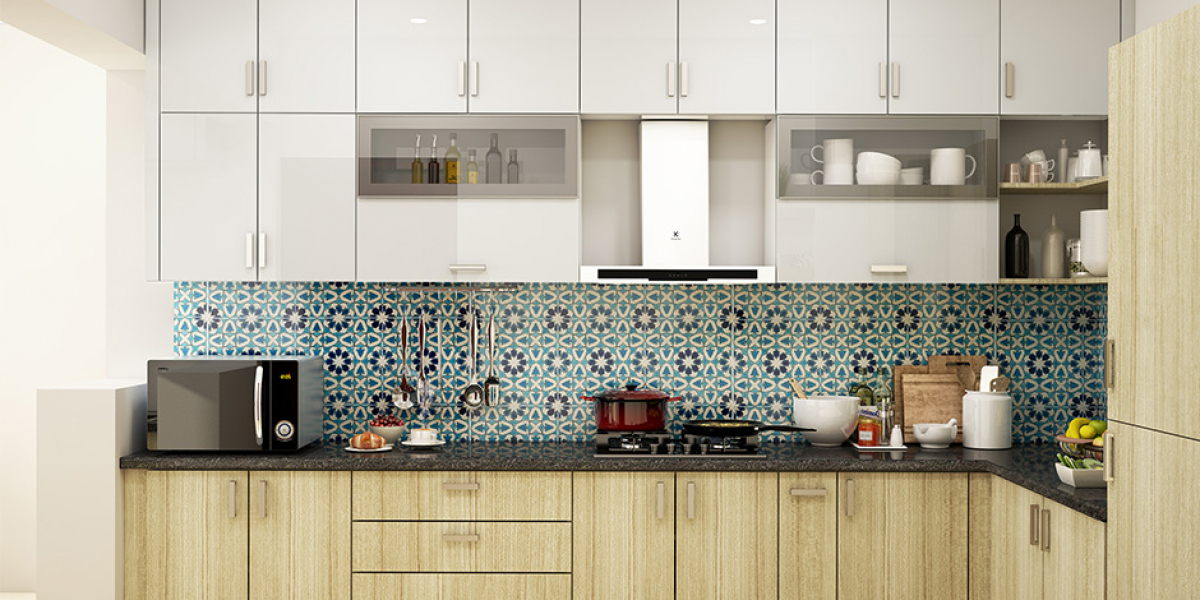Moroccan tiles are a perfect way to add character, style, and cultural richness to any kitchen. Renowned for their intricate patterns, vibrant colors, and handmade craftsmanship, these tiles offer a stunning aesthetic that blends traditional Moroccan artistry with modern kitchen design. Whether you're seeking a bold and eye-catching backsplash, a decorative floor, or an accent wall, Moroccan tiles can transform your kitchen into a captivating space full of warmth and personality.
Aesthetic Appeal: Tradition Meets Modern Design
One of the primary reasons for Moroccan tiles' rising popularity in kitchen design is their unmistakable beauty. The bold geometric patterns, often inspired by centuries-old Islamic art, create a visually stunning and unique look that instantly draws attention. These patterns can vary from delicate floral designs to intricate star-shaped motifs, allowing for endless customization and creativity.
While traditional Moroccan tiles are known for their vibrant blues, greens, yellows, and terracotta hues, modern adaptations often introduce more neutral tones, like grey, white, or black, to suit contemporary tastes. This blend of tradition and modernity allows Moroccan tiles to complement various kitchen styles—from rustic and bohemian to sleek and minimalist.
Versatile Design Options for Every Space
Moroccan tiles offer incredible versatility when it comes to design. They can be used in various parts of the kitchen, each creating a distinct visual impact:
Backsplashes: Moroccan tiles make for stunning backsplashes, offering a perfect balance of function and artistry. The intricate patterns and vibrant colors add depth and visual interest to the area between countertops and cabinets, creating a striking focal point.
Flooring: Moroccan tiles on the kitchen floor can transform your space into an artistic masterpiece. The combination of durability and beauty ensures your kitchen remains stylish while enduring daily foot traffic. The unique patterns add texture and dimension, making the floor a statement piece.
Accent Walls: If you're not ready to commit to an entire tiled floor or backsplash, consider using Moroccan tiles for an accent wall. This can serve as a dramatic backdrop, enhancing the overall ambiance and making the kitchen feel more welcoming and warm.
Countertops and Island Sides: For a bold approach, some homeowners incorporate Moroccan tiles on countertops or the sides of kitchen islands. This adds an unexpected twist, merging functionality with a rich, artistic touch.
Durability and Practicality
Beyond their visual appeal, Moroccan tiles are efficient for kitchen use. Typically made from durable materials such as ceramic, cement, or clay, these tiles are heat-resistant, making them ideal for areas near stoves and ovens. Their water-resistant properties are also perfect for high-moisture areas like backsplashes or floors.
Maintenance is relatively easy, as Moroccan tiles are simple to clean with regular wiping and resistant to stains and spills—important features for a busy kitchen environment. The tiles' natural slip-resistant surfaces make them a safe choice for kitchen flooring, especially in households with children or elderly individuals.
Sustainability and Craftsmanship
Many Moroccan tiles are handcrafted using traditional methods passed down through generations of artisans. This craftsmanship makes each tile unique and highlights the cultural heritage of Moroccan artistry. By choosing Moroccan tiles, homeowners often support sustainable practices, as many manufacturers emphasize environmentally friendly production processes and using natural, locally sourced materials.
Timeless Elegance That Enhances Any Kitchen
Whether you prefer bold, colorful designs or subtle, neutral patterns, Moroccan tiles offer a timeless elegance that can enhance any kitchen. Their ability to combine tradition with modern functionality makes them a versatile and enduring design choice. The unique blend of artistry, durability, and practicality ensures that Moroccan tiles will continue to be a popular option for those seeking to create a kitchen that is as beautiful as it is functional.
Incorporating Moroccan tiles into your kitchen design adds an aesthetic appeal and a sense of history, culture, and craftsmanship, making your kitchen a true reflection of global style and timeless elegance.









